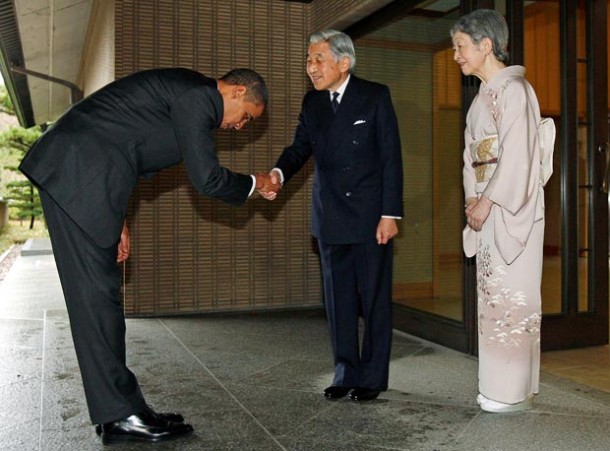70 SALITANG DAPAT MATUTUNAN NG BAGUHAN O BAGONG SALTA SA JAPAN
Kapag bibisita ka sa Japan o bago ka pa lang sa Japan, at wala kang kaalam-alam na salitang Hapon, mahalagang may matutunang mga importanteng salita upang makausap kahit papano ang mga tao roon, dahil marami ring mga Hapon ang hirap mag-English. Kaya’t kapag nagmamadali kang dapat matuto ng Hapon, itong mga importanteng salita ay makakatulong sayo sa madaming sitwasyon.
LUGAR AT DIREKSYON
Kapag nawawala ka sa Japan, makakatulong itong mga salita:
日本 (nihon) = Japan. Dapat naman alam mo kung nasaang bansa ka, di ba...
ホテル (hoteru) = Hotel.
どこ (doko) = Saan? Kapag mayroon kang hinahanap na lugar
空港 (kuukou) = Airport.
タクシー (takushi) = Taxi. Madaming taxi na makikita, pero napaka-mahal, hay…
右 (migi) = kanan
左 (hidari) = kaliwa
真っ直ぐ (masugu) = Direcho
電車 (densha) = Train
車 (kuruma) = Car/kotse
飛行機(hikoki) = Airplane
Read more: Paraan ng pagtanong sa hapon

EMERGENCY
Kapag merong emergency, kailangan mong alamin kung paano humingi ng tulong, maging sa paghanap ng banyo/CR, o pagtawag ng saklolo.
助けて (tasukete) = Saklolo!
トイレ (toire) = Toilet/CR/Banyo Kapag naiihi o kelangan pumunta ng banyo, haha…
わかりません (wakarimasen) = Hindi ko naintindihan. Kapag hindi mo naintindihan ang sinasabi ng hapon, sabihin mo lang ito.
やめて! (yamete!) = Tigil! Kapag gustong mong patigilin ang isang tao sa ginagawa niya, ito ang sasabihin mo. Halimbawa, kapag may nanggugulo sayo at gusto mo patigilin, sabihin mo ito.
英語 (eigo) = English. Minsan kailangan mo ng taong marunong mag-English upang tumulong sayo.
危ない (abunai) = Mapanganib/Danger. Makikita mo mayroong mga signs sa Japan na may nakasulat nito. Kapag may nagsabi sayo ng “abunai”, maaaring kailangan mong tignan ang nilalakaran mo.

警察 (keisatsu) = Police.
お金(okane) = Pera/Money. Baka kailanganin mong humingi ng pera, hehe.
はい(hai) = Oo / Yes. Isa sa dapat mong agad matutunan na salita.
PAGTATANONG
なに? (nani) = Ano / What Importante ito, dahil kahit hindi ka pa gaano marunong mag-Hapon, pwedeng ituro ng hapon kung anong tinutukoy niya.
どうして? (doushite?) = Bakit? / Why? Maaaring hindi mo maintindihan ang sagot nila, pero makakatulong din itong tanong, dahil pwede nilang i-aksyon ang sagot.
TUNGKOL SA PAGKAIN
Kapag naghahanap ka ng pagkain, o kakain na kasama ang mga hapon, makakatulong itong mga salita:
おなかすいた (onaka suita) / はらへった (hara hetta) = Nagugutom.
食べます (tabemasu) = Kumakain. Halimbawa: Kumakain ka ba nito?
食べません (tabemasen) = Hindi kumakain. Halimbawa allergy ka sa seafoods…
飲みます (nomimasu) = Uniinum
飲みません (nomimasen) = Hindi umiinum. Halimbawa: Sorry po, hindi po ako umiinum ng beer.
水 (mizu) = Tubig. Kapag gusto mo ay tubig lang at ayaw mo ng juice, kape o softdrinks…
食べ物 (tabemono) = Pagkain.
美味しい (oishii) = Masarap. Kapag masarap ang luto, pwede mo ito sabihin pampuri.
 レストラン (resutoran) = Restaurant.
レストラン (resutoran) = Restaurant.
コンビニ (konbini) = Convenience Store. Madaming mabibili sa convenience store sa Japan.

スーパー (suupaa) = Supermarket.
READ MORE: PINAKAKILALANG PAGKAING HAPON
MGA KAUGNAY SA NUMERO
一 (ichi) = One.
二 (ni) = Two.
三 (san) = Three.
四 (shi/yon) = Four. Tulad sa mga Chinese, nauugnay minsan ang number 4 sa kamalasan dahil katunog nito ang salitang kamatayan.
五 (go) = Five.
六 (roku) = Six.
七 (shichi) = Seven.
八 (hachi) = Eight.
九 (ku) = Nine.
十 (juu) = Ten.
百 (hyaku) = 100.
千 (sen) = 1,000.
万 (man) = 10,000.
円 (en) = Yen. Ang currency ng pera sa Japan.
Basahin pa: Paano magbayad o magtanong ng presyo sa Hapon?
PAGIGING MAGALANG
Kailangan maging magalang sa ibang tao, lalo na kung nasa ibang bansa ka, at hindi maganda na may magkakasam ng loob sayo.
ありがとうございます (arigatougozaimasu) = Thank You.
すみません (sumimasen) = Excuse Me. Pwede itong gamitin kapag makikiraan sa madaming tao.
ごめんなさい (gomennasai) = Sorry.

PAGBATI
Siguradong may makikilala kang mga mababait na hapon, at magandang bumati sa kanila ng maayos.
おはようございます (ohayougozaimasu) = Magandang umaga
こんにちは (konnichiwa) = Magandang hapon
こんばんは (konbanwa) = Magandang gabi
さようなら (sayounara) = Good bye.
おやすみなさい (oyasuminasai) = Good Night.
PANDIWA (VERBS) O SALITANG KILOS
Malaki ang maitutulong ng mga salitang nagsasaad ng galaw sa pagkikipagusap sa ibang Hapon, tungkol sa mga nais mong gawin.
行きます (ikimasu) = Pupunta
帰ります (kaerimasu) = Uuwi
食べます (tabemasu) = Kakain
買います (kaimasu) = Bibili
待ちます (machimasu) = Aantay
PANG-URI O ADJECTIVES
Mahalaga din ang mga salitang adjectives sa paglalarawan ng mga tao o bagay.
新しい (atarashii) = Bago
嬉しい (ureshii) = Masaya
大丈夫 (daijoubu) = Okay. As in “Ok, lang ako!”
高い (takai) = Expensive / Tall. (Depende sa paggamit)
大きい (ookii) = Malaki
小さい (chiisai) = Maliit
近い (chikai) = Malapit
遠い (tooi) = Malayo
悪い (warui) = Masama
いい (ii) = Mabuti
Malamang mayroon pa kayong ibang salita na naisip na sa palagay ninyo ay dapat ding makasama dito, dahil depende rin sa tao kung anong salita ang mas importante. Eto na ang pagkakataon upang maibahagi ninyo ang inyong opinion at makatulong sa ibang mga Filipinos na gustong matuto ng Hapon, sa pamamagitan ng “Reply” section sa ibaba.
SUNOD: PAANO MAGPALIT NG PERA O MAGBAYAD SA HAPON?
PAGSALAKAY NG HAPON SA PILIPINAS
The importance of learning about foreign cultures is well known nowadays. With the ongoing globalization any kind of interactions between human beings of different cultures is increasing. As a result, people put more and more effort into the process of learning foreign languages. Different fields such as healthcare, education, business, culture, politics, legal and scientific research are affected by the significance of foreign languages. Culture influences how people interact with each other. In the business world, culture guides decision-making, behavior, thinking patterns and values.
Foreign culture learning opens our minds to new cultures and new ways of thinking. It gives us the chance to consider foreign cultures against our own values and traditions and gives us a deeper respect for our multi-faceted world. Through language learning, we are exposed to a different set of customs, traditions, aesthetics, cuisines, philosophies, politics, and histories.
Cultural differences also mean different social behaviour and different ways of communicating, even if people speak the same language. This often leads to misunderstandings in communication that is caused not necessarily by language/translation problems but by different social acting, as this also depends from our cultural backgrounds.
It can also make your resume look better. With globalization in full swing, there's a good chance you'll be working with people whose first language isn't English. Maybe it's a development team in India, or a manufacturing plant in China, or an alternative energy supplier in Germany; being able to communicate in other languages makes you much more valuable to an employer.
Exploring new cultures widens horizons and gives personal experiences. A rewarding parts of learning foreign languages is that it helps us to make connections with people overseas. It is amazing how people’s perception of a foreigner abroad changes when they speak the language of the host foreign country. It can transform the way people perceives you from an outsider to a friend. It allows a foreigner to build trust more quickly and to establish a stronger relationship with people. Also, we are showing respect to the mother countries of these languages.